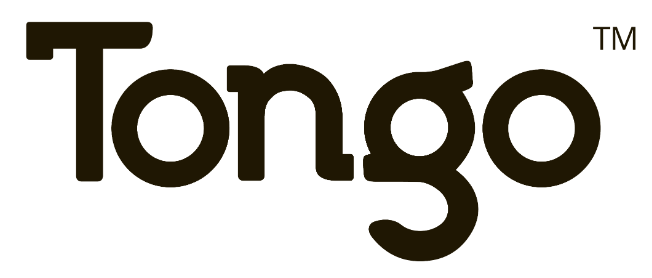4 Key Real Estate Trends for 2023
2022 was a roller-coaster year for the housing market and 2023 is poised to be even more of the same. Highly volatile macroeconomic forces combined with shifting consumer demand, advancing technology, and the still-lingering effects of the pandemic will present new challenges but also new opportunities to drive more listings and sales. We identified four key real estate market trends that will be impacting the industry over the next 12 months. Here’s what you need to know about what’s next:
1. Rising mortgage rates, of course.
The Federal Reserve Bank continues to raise the federal funds rate without mercy, pushing borrowing costs to their highest levels since 2007. As of this writing, the current average 30-year fixed-mortgage rate is 6.52% compared with 2.96% for all of 2021.
Depending on your market, you can meet the challenge in different ways. Naturally, you can make the flight to quality: focus on buyers with high credit scores, high incomes, and free cash willing to close now before rates go any higher.
You could also position yourself as the savior of anxious sellers, especially those in the middle market, squeezed between resisting a price decrease and buyers unwilling or unable to meet the current terms. Helping sellers see the potential value in carrying back some of the mortgage (gaining purchase price plus interest) or, say, lowering their price only for all-cash buyers could help you gain more listings.
2. Advancing technology, nonstop.
In many ways, the pandemic dragged the real estate industry’s paper-based processes kicking and screaming into the digital world of the early 21st century. This trend will increase exponentially in 2023 as applications and devices evolve and prices continue to drop, despite inflation. We predict that:
- You’ll be able to create and post 3D gallery tours of properties, complete with music and voiceover, for a fraction of today’s already moderate cost.
- Aerial drone photography will continue to provide beautiful imagery which allows buyers to get a better understanding of what the property looks like, its dimensions, and the surrounding area.
- The paper chase will finally come to an end (almost), with secure document delivery, e-signatures, and online notarization creating a seamless, near-paperless, end-to-end transaction experience.
- Digital payments will continue to replace checks for most transactions, including your commission or commission advance. Payments and transfers that used to take days are done in minutes and soon they will be done in seconds. Middle-market and above buyers will expect and even insist on using cards and digital wallets for everything from good-faith deposits and fees to down payments.
- Artificial intelligence and predictive analytics will become increasingly valuable, but only for those who know how to use them. Yes, the algorithms that sort through thousands of home characteristics and sales data to spot patterns and provide insights will only get smarter and less expensive. The key is to use them as tools, not crutches. No software will ever be able to predict the picky buyer that doesn’t like the color scheme and balks at oil heating, or the seller who wants to change the terms mid-deal.
- Mobile-first, if not mobile-only, will be the newest normal. Other than showing up and pounding that “For Sale” sign into the grass, most of your traditionally analog tasks will end up online. Tablets have replaced clipboards and QR codes are leading prospects to download property-specific apps complete with photos, video, sound, financial illustrations, and calculators, all of which can be updated as needed.
3. Teams will continue to be more popular.
Taking their cue from the management consulting world, many brokerages will double down on pod structures to scale their business. Each team may have its own specialists who take some of the non-selling activities off the lead agent’s plate. There may be a client associate to handle the (digital) paperwork and field general inquiries (“What time is the appraisal?”), a transaction coordinator to keep the money moving, a sales associate who does nothing but prospecting, and a tech/web person to make sure it all works together in the cloud. (Of course, in today’s tight labor market, some people will perform multiple roles.) So, you can spend more time building relationships, securing listings, and selling.
4. Ironically, the demand for second homes will rise … for some.
A battle is raging between knowledge workers liberated by COVID-19 from their commutes and offices and employers. These firms, along with anxious commercial real estate owners and revenue-strapped municipalities, are begging, pleading, wheedling, cajoling, and threatening to get staff back in their buildings—at least some of the time. On another front, there’s a war for talent in which some firms are using the “fully remote” carrot to lure unhappy workers away from their traditional, in-person 9-5’s.
“Hybrid work environment” is a compromise whereby employees show up two or three days a week. This arrangement, of course, poses a problem for people who bought properties, for example, in the beautiful San Diego suburbs thinking they would never have to set foot in downtown Los Angeles again. Their dilemma gives you an opportunity to move condo, co-op, and rental inventory to hybrid workers who can afford a local pied-à-terre. Of course, the opposite is also true: many city-bound workers would like a second home in the country to enjoy their three- and four-day stretches out of the office. In either case, these buyers tend to be affluent and educated with solid support (e.g., insurance, investment, and banking specialists) and offer the potential for excellent referrals within their demos.
Of course, every market is different, and economic, demographic, and technology shifts will continue to impact the industry in the new year. Our expansive broker community gives us access to unique insights, information, and perspectives that we’ll be happy to share with you throughout 2023.
Want to tell us about trends that are driving change (good or bad) in your market? Drop us a line at community@gettongo.com.

